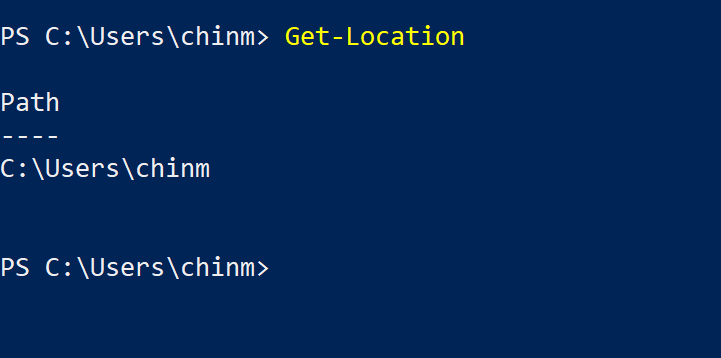Get-ChildItem
We can also specify a different directory to list the files and directories in that directory by using the -Path parameter:
Get-ChildItem -Path D:\TestDir
Get-ChildItem -Filter *.txt
We can find more about Get-ChildItem command and its usage by using:
Get-Help Get-ChildItem
Get-ChildItem [[-Filter] <System.String>] [-Attributes {Archive | Compressed | Device | Directory | Encrypted | Hidden | IntegrityStream | Normal | NoScrubData | NotContentIndexed |Offline | ReadOnly | ReparsePoint | SparseFile | System | Temporary}] [-Depth <System.UInt32>] [-Directory] [-Exclude <System.String[]>] [-File] [-Force] [-Hidden] [-Include <System.String[]>] -LiteralPath <System.String[]> [-Name] [-ReadOnly] [-Recurse] [-System] [-UseTransaction] [<CommonParameters>]
Get-ChildItem [[-Path] <System.String[]>] [[-Filter] <System.String>] [-Attributes {Archive | Compressed | Device | Directory | Encrypted | Hidden | IntegrityStream | Normal | NoScrubData | NotContentIndexed | Offline | ReadOnly | ReparsePoint | SparseFile | System | Temporary}] [-Depth <System.UInt32>] [-Directory] [-Exclude <System.String[]>] [-File] [-Force] [-Hidden] [-Include <System.String[]>] [-Name] [-ReadOnly] [-Recurse] [-System] [-UseTransaction] [<CommonParameters>]




